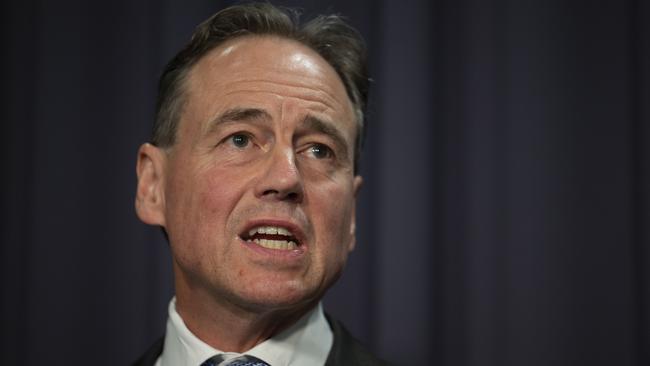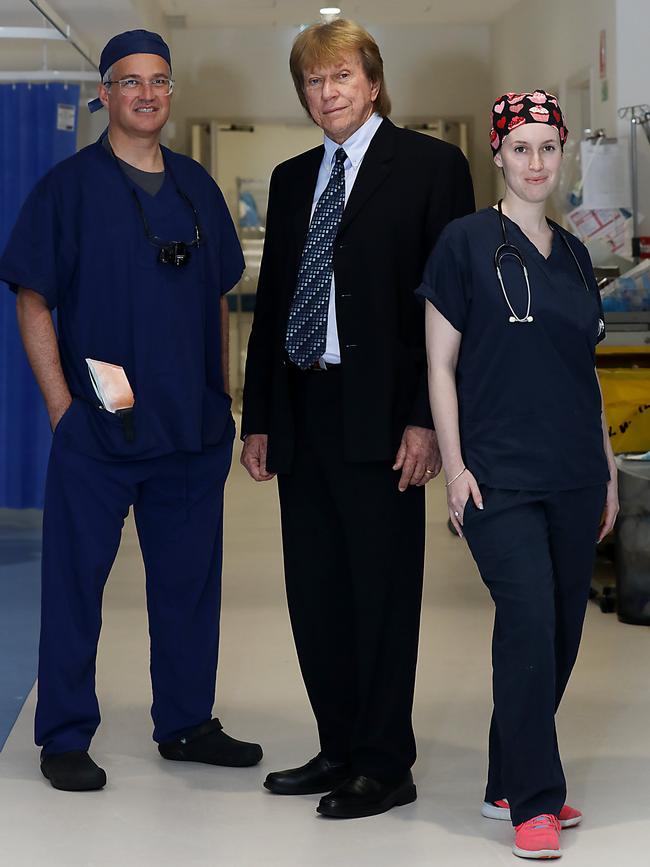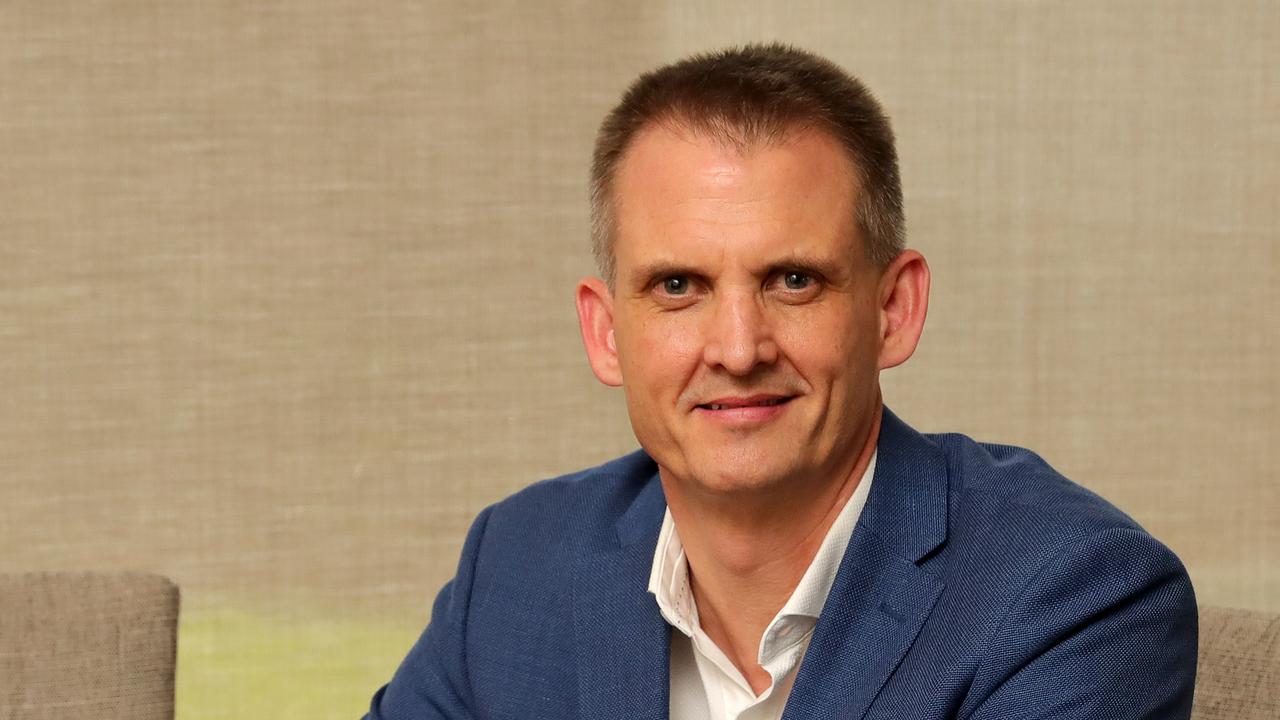Greg Hunt says no to health insurers creep into US-style managed care
Greg Hunt has put Australian health funds on notice that the government does not support the local industry creeping into US-style managed care.

Federal Health Minister Greg Hunt has put Australian health funds on notice that the government does not support the local industry creeping into US-style managed care, as concerns grow that insurers are already seeking to influence the delivery of healthcare services.
In the past year, Medibank has taken stakes in hospitals in Sydney and Melbourne, while Newcastle-based insurer NIB has proposed forming a “buying group” to manage contracts with healthcare providers and insurers.
While Medibank says its decision to take minority stakes in hospitals will preserve clinical autonomy, with doctors having the final say on care, and the Australian Competition and Consumer Commission has granted draft authorisation to NIB, health groups warn the moves are a step towards US-style managed care.
A spokeswoman for Mr Hunt said Australia’s health system relied on clinical autonomy and the government would protect that.
“Our position is very clear. We do not support a US-style approach to the health system,” the spokeswoman said.
“It is critical that patients have choice; that healthcare providers have the clinical autonomy to determine that their patient gets the right care, at the right time and in the right setting; and that private health insurance is affordable.”
However, doctors and hospital groups are not convinced. The Australian Society of Ophthalmologists has even created a campaign called “send the eagle home”, referring to the US’s national symbol, and is particularly concerned about the ACCC’s draft approval for NIB’s buying group.
“NIB health insurance has entered a joint venture with US managed care organisation Cigna Healthcorp, a US market giant in managed care with revenues of $180m.
“Cigna didn’t come to Australia just to see the Harbour Bridge,” Australian Society of Ophthalmologists vice-president Dr Peter Sumich said.
“Health insurers want the doctor controlled by a contract so cost savings can be made on hospital admissions, cheaper treatments and cheaper prosthetic implants. Under US managed care, the patient must accept whatever treatment the insurer contracts for them. The insurer calls the shots.
“Critics might suggest protesting doctors are just protecting their incomes, but ironically doctors can be paid more to take these contracts as long as they adhere to the insurer’s contract requirements.”

Australian Medical Association president Dr Omar Khorshid said: “The reality is that the proposed buying group will potentially wield significant market power in some areas – particularly in relation to services provided by medical specialists.
“This could lead to the demise of some smaller health funds.”
Australia’s second biggest hospital operator Healthscope said: “The movement of private health insurers into healthcare delivery and doctor contracts potentially impinges (on clinical independence).
“We share concerns about insurers seeking to exert more influence over clinical decision making.”
Health insurers have been the target of criticism for sitting on “piles of gold” – provisions they have taken to fund surgery deferred during last year’s Covid-19 lockdowns.
The insurers regulator, the Australian Prudential Regulatory Authority, has warned insurers not to bank these savings.
Meanwhile, some insurers, such as HBF and AIA, have already begun returning surplus funds to their members after a backlog of claims from lockdowns failed to eventuate.
According to APRA, in the March quarter insurers collected $6.4bn in premium revenue, while they paid $5.4bn in claims.
However, the regulator said the industry was yet to return to normal.
“The industry reported higher insurance profits in the March quarter 2021, with fund benefits (claims) falling at a higher rate than premium revenue,” APRA said.
“The insurance result was largely offset by lower investment income, and this resulted in the industry reporting a 1.1 per cent decrease in net profits after tax in the quarter.
“The number of hospital episodes declined in the quarter and remained below pre-Covid levels while the number of ancillary services at the end of March 2021 remained slightly above pre-Covid levels.”
Before the pandemic, health insurers were scrambling to stem the exodus of young and mainly healthy Australians from ending their health insurance policies in the wake of rising premiums and out of pocket costs.
This prompted Medibank to take a minority stake in East Sydney Private Hospital at Woolloomooloo, which has a short stay, no gap model – diverting money that is normally spent on lengthy hospital stays into operations and at-home rehabilitation.
Medibank said East Sydney was open to all private patients and doctors remains in charge of clinical decision making.
It has since partnered with 42 doctors to build a $64m short-stay hospital in Melbourne, again taking a minority stake.
Meanwhile, the ACCC said in its draft authorisation for NIB’s buying group plan that it “is likely to result in public benefits by providing more choice for insurers and other healthcare payers, increased competition between buying groups, and giving participants more input into contracts and better information”.
“Our preliminary view is that authorising NIB and Honeysuckle Health to form a buying group delivers public benefits that outweigh any potential adverse effects on competition,” ACCC commissioner Stephen Ridgeway said.



